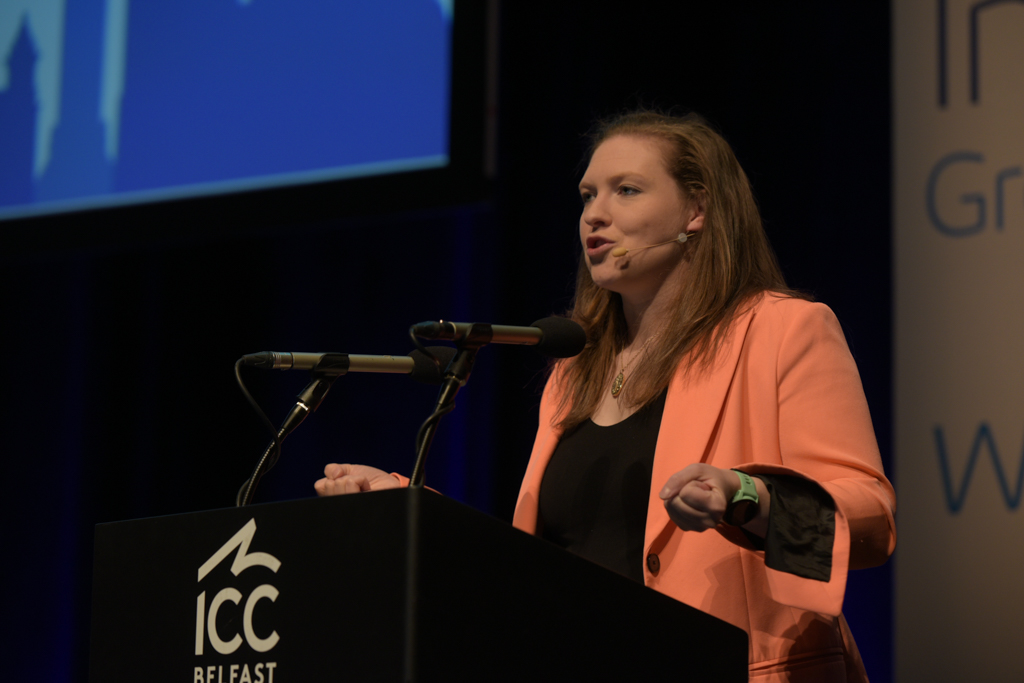 Blog by Mary Hession, SI Drogheda
Blog by Mary Hession, SI Drogheda
Gemma Milne made the second keynote speech of the day, A researcher, writer and journalist she is currently studying for her PhD in science and technology studies in UCL.
She was thus well qualified to share with us some thoughts about serious questions we should consider, so that we can decide what we as a society are trying to do, how we, as women and citizens are or should be active in this and whether science and technology are going to deliver all the answers.
Whether, in fact, our ultimate objectives are helped or hindered by science.
The presentation fell neatly into three sections, looking at what could be changed in the immediate future ‘Act now, not later’; where change is actually happening ‘What’s being done’; and ‘How to change mindsets’.
Why, she asks, do we continue with collecting new statistics, when we might usefully investigate existing information. For example, the statistic that black women are 4 times more likely to die in childbirth than white, has been recorded for many years, so funding for more statistical studies in that regard might better be used to improve pre and post natal treatment for these particular patients.
Furthermore, we all know from existing statistics that social status is a determinant of good health outcomes, so she says again, maybe funding used to repeat statistics could be allocated to improving the conditions of poorer people, thus improving outcomes.
Looking at some of the ways she observes that science and technology are supporting health, Gemma gave a number of examples. She spoke about the ability of using IT to share and collaborate with information and expertise, for example that it might be possible in the near future for surgeons to operate through a robot system in another country.
Co-operation between, for example GP services and community groups might mean a greater interaction between services leading to support for the person as a whole, not just dealing with symptoms. Gemma cited ‘epidemic loneliness’ as a really good example of a person needing not just medical care, but also community support, and that this cannot be provided without good communication between the providers.
Concluding her presentation with a ‘How To’ Gemma recommended that in our social actions we ‘show’ people what we do, don’t tell them, that we should allow ourselves time to celebrate our achievements – then build on them.
Finally, finally, Gemma recommended to us that we should never feel that ‘scientists know it all’, that they should decide for us, but that we develop our capacity for critical thinking

